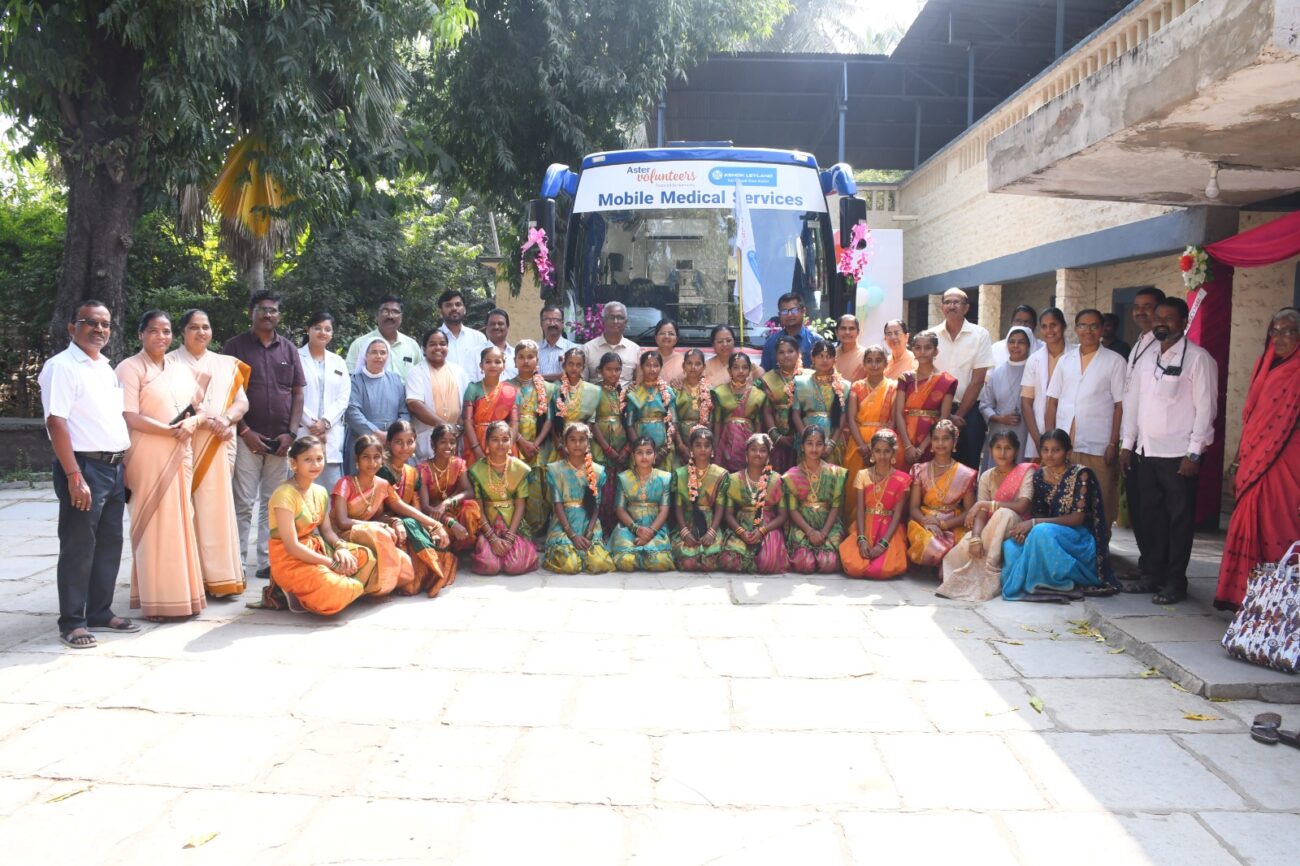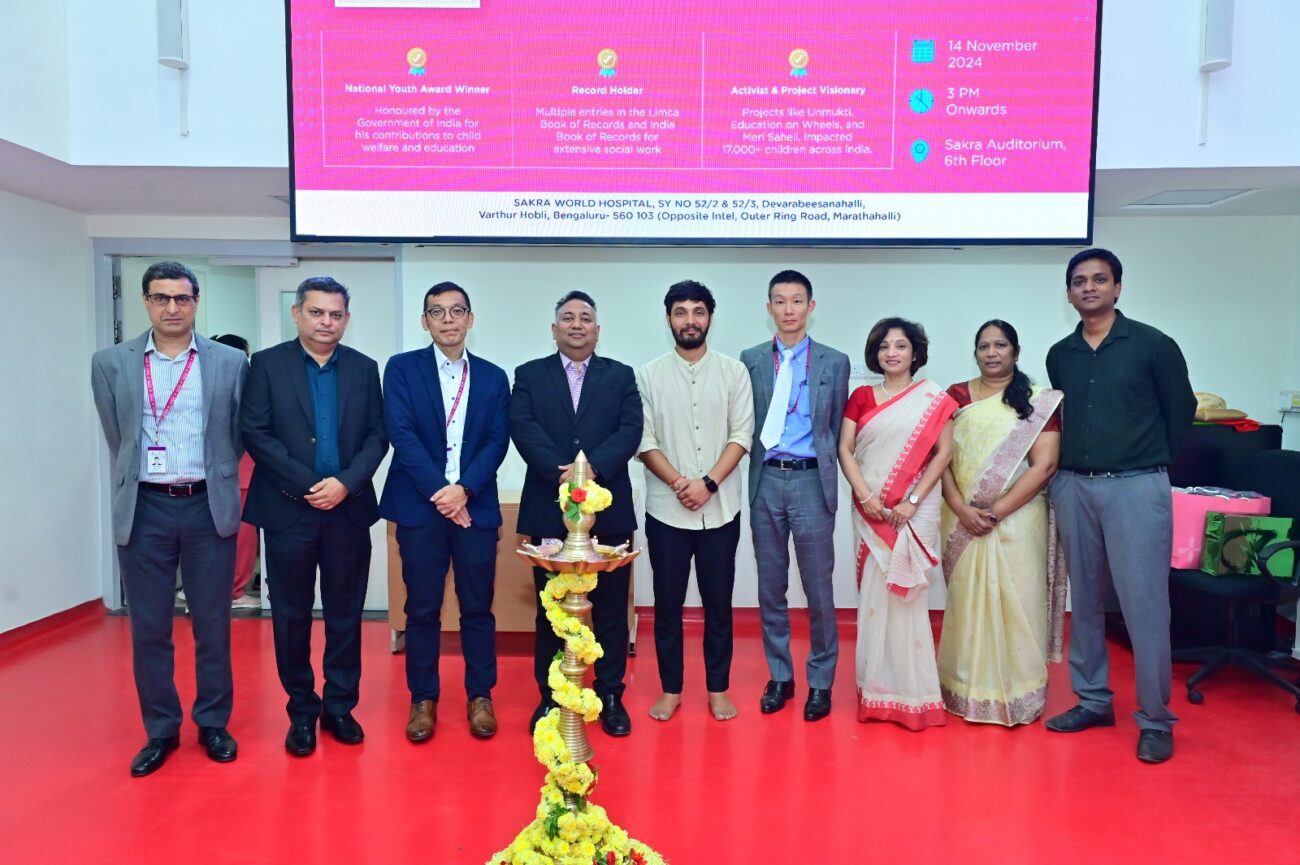BGS Gleneagles Global Hospital successfully treats a 43 -year- old woman with a commonly missed vascular disorder
A 43-year-old teacher was successfully treated for a rarely detected vascular disorder called May Thurner’s syndrome (MTS), which she battled for the past 10 year. The patient suffered from recurrent swelling, pain and ulcer wounds

A 43-year-old teacher was successfully treated for a rarely detected vascular disorder called May Thurner’s syndrome (MTS), which she battled for the past 10 year. The patient suffered from recurrent swelling, pain and ulcer wounds on her left leg for many years, despite undergoing medical intervention for varicose veins in other hospitals. When the patient had no respite from the recurrent ulcers, she approached the Dept. of Vascular & endovascular surgery of BGS Gleneagles Global Hospital. After the initial evaluation and examination, the patient was advised MR venography, which revealed that she was suffering from May-Thurner’s syndrome. This was the cause for the recurrent ulcers. Lack of immediate medical intervention could have worsened the ulcer and most importantly also could result in clotting of blood in the veins (DVT), eventually causing pulmonary embolism. To avoid such complications Dr Rahul.N.S, Vascular & Endovascular surgeon, advised the patient to undergo Venoplasty stenting of the left iliac vein, which helped her recover from recurrent ulcer and get back to her normal life.
Ms Sunita (Name changed) a 43-year-old teacher from Tumkur was diagnosed with varicose veins 10 years back. She used to get severe pain, swelling and recurrent ulcers on her left leg despite regular dressings and several medications. Patient was depressed as it affected her social life and was on regular dressings for almost 8 years. Many medical practitioners advised her to undergo repeated doppler scans to identify the cause but was undetected.
Ms Sunita (Name changed) approached Dr Rahul.N.S, Vascular & Endovascular surgeon from BGS Gleneagles Global Hospital for help in the year 2018. Looking at the swelling and severe ulcer wounds on her left leg, the doctor advised her to go through MR venography, (which is used to evaluate abnormalities in the veins). After examining her reports, doctor learned that the patient was suffering from May Thurner’s Syndrome in which, the right iliac artery puts pressure on the left iliac vein causing narrowing of the vein. Further delay in medical intervention to treat the left iliac vein would have caused disturbances in the blood flow, leading to Deep Vein Thrombosis.
Dr Kiran Kumar, HOD Medical Services says, “MTS is found 3 times more common in women than men. In most cases this syndrome occurs due to 5-7% of the venous outflow problems in the left leg. May Thurners syndrome cannot be prevented as it is an anatomical abnormality. However, the severe complications of the syndrome can be prevented by early clinical evaluation and management.”
Post learning her condition the doctor and the team decided to treat her by removing the block in her deep veins. The patient underwent Venoplasty stenting of the left iliac vein, in which a balloon angioplasty procedure was done to restore the proper blood flow. This procedure is done under local anaesthesia. It was a minimally invasive procedure which lasted only for 1 hour.
Dr Rahul NS, Vascular and Endovascular Surgeon, says, “Vein stenting requires a proper understanding of the venous anatomy and clinical acumen. Right knowledge of the size of the veins and anatomical variants is important to prevent rupture, which is uncommon but life threatening. It is important for the patients to be aware that varicose veins is just a part of a broader pathology called “Chronic venous insufficiency” and not just cosmetic management of the prominent veins. Management of varicose veins requires thorough knowledge of the deep vein systems too. “Vascular & Endovascular surgeons” are the only specialists who have expertise clinical evaluation as well as training in both minimally invasive and open surgical procedures. “Treat the patient, not the reports” holds perfectly good for such patients.
Dr Rahul. N.S, Vascular & Endovascular surgeon who spearheaded the surgery with the support from Cath lab and the nursing staff made the minimal invasive surgery possible.
The patient was discharged the next day after the procedure and adequate medications. The wound healed in 2 weeks and the patient was able to get back to her routine life confidently. The patient is doing good and is ulcer free for the past 2.5 years.






